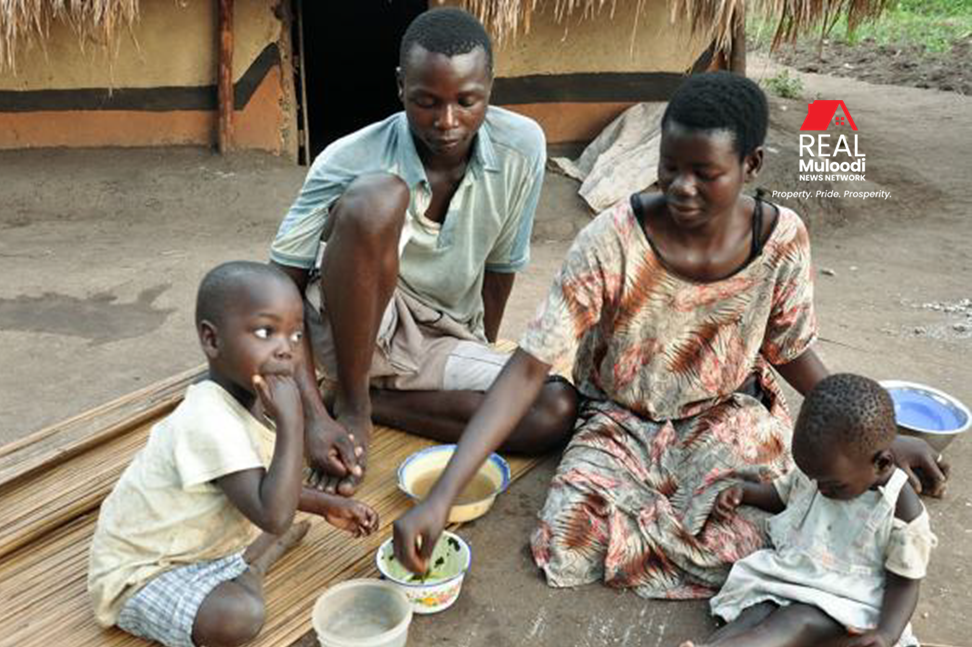UGANDA, Kiryandongo | Real Muloodi News | Thousands of families in Kiryandongo District are facing the threat of eviction by the government, causing fear and uncertainty among the affected communities.
The families, which include Nubians who were former victims of the Lord Resistance Army war, as well as residents of Nyamakere, Kibeka, and former Palestinian land near Murchison National Park and Karuma Wildlife Reserve, are living in fear of losing their homes and land.
These communities have petitioned the Equal Opportunity Commission (EOC) to help legalise their stay on the land and seek compensation for the portions taken by the government during the gazetting of the national park and wildlife reserves.
The marginalised communities represented by the Bunyoro Socio-economic Forum Advocacy for Community Development have asked the EOC to intervene and ensure their rights to the land are recognised.
They are unable to develop the land or build permanent structures due to the fear of eviction. They argue that they were previously evicted in the 1970s and 1999 and demand compensation for the land taken by the government.
The victims also highlight the inclusion of displaced victims of the Lord Resistance Army war and Nubians in their cause.
The EOC opened a case, numbered EOC/WR/067/2019, in response to the communities’ petition. A special EOC tribunal, led by Mr Joel Cox Ojuko, was established to hear and determine the matter.
The case has undergone multiple hearings at Kigumba Town Hall, with the government represented by the Attorney General (AG) and the communities represented by their association.
The victims argue that the government’s actions amount to marginalisation, contrary to the Equal Opportunities Commission Act, of 2007.
The AG’s office has countered the locals’ claims, stating that they have no legal basis for their complaints and are not entitled to any relief.
The AG’s office raised objections regarding the jurisdiction of the EOC tribunal, the proper submission of the complaint, and whether the complaint is time-barred.
However, in a ruling on October 4, 2022, Mr Ojuko overruled the preliminary objections, allowing the case to proceed. The hearing has been adjourned to July 10.
Mr Ojuko’s ruling emphasises that the EOC has jurisdiction to hear the case based on the EOC Act, 2007, which aims to eliminate discrimination and inequalities against individuals or groups based on various grounds.
The Act enables the EOC to take affirmative action to redress imbalances and address marginalised groups.
Mr Ojuko noted that several witnesses have provided statements in support of the complaint, confirming that the affected persons have given their consent for the complaint to be filed on their behalf.
He also addressed the AG’s claim that the complaint was time-barred, clarifying that the complainants are primarily interested in compensation and resettlement rather than recovering the specific pieces of land.
Unless the AG’s office appeals the ruling, they will face the communities before the EOC’s tribunal on July 10.
However, the Attorney General, Mr Kiryowa Kiwanuka, stated that he is not currently aware of the case and will need to consult his officials for further information.
According to the Land Amendment Act 2010, tenants have the right to resist eviction, especially if they have been paying rent (busuulu).
Landlords require a court order to evict tenants and must notify them before selling their land.
However, these legal protections are often ignored, and many tenants are being forced off their land without court orders or adequate compensation.
The case in Kiryandongo highlights the challenges faced by vulnerable communities in protecting their rights to land and housing.
The outcome of the legal proceedings will have far-reaching implications for the affected families and may set a precedent for addressing similar issues in the future.
READ MORE LIKE THIS:
Fraudulent Sale of Kiryandongo Govt Land Leaves 1000 Homes Dispossessed



